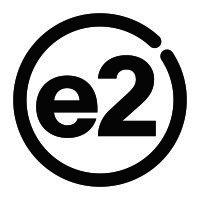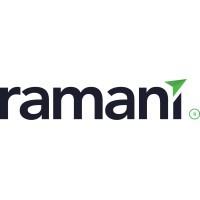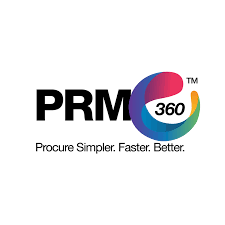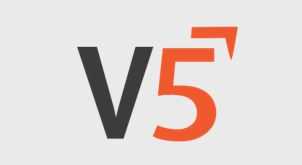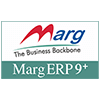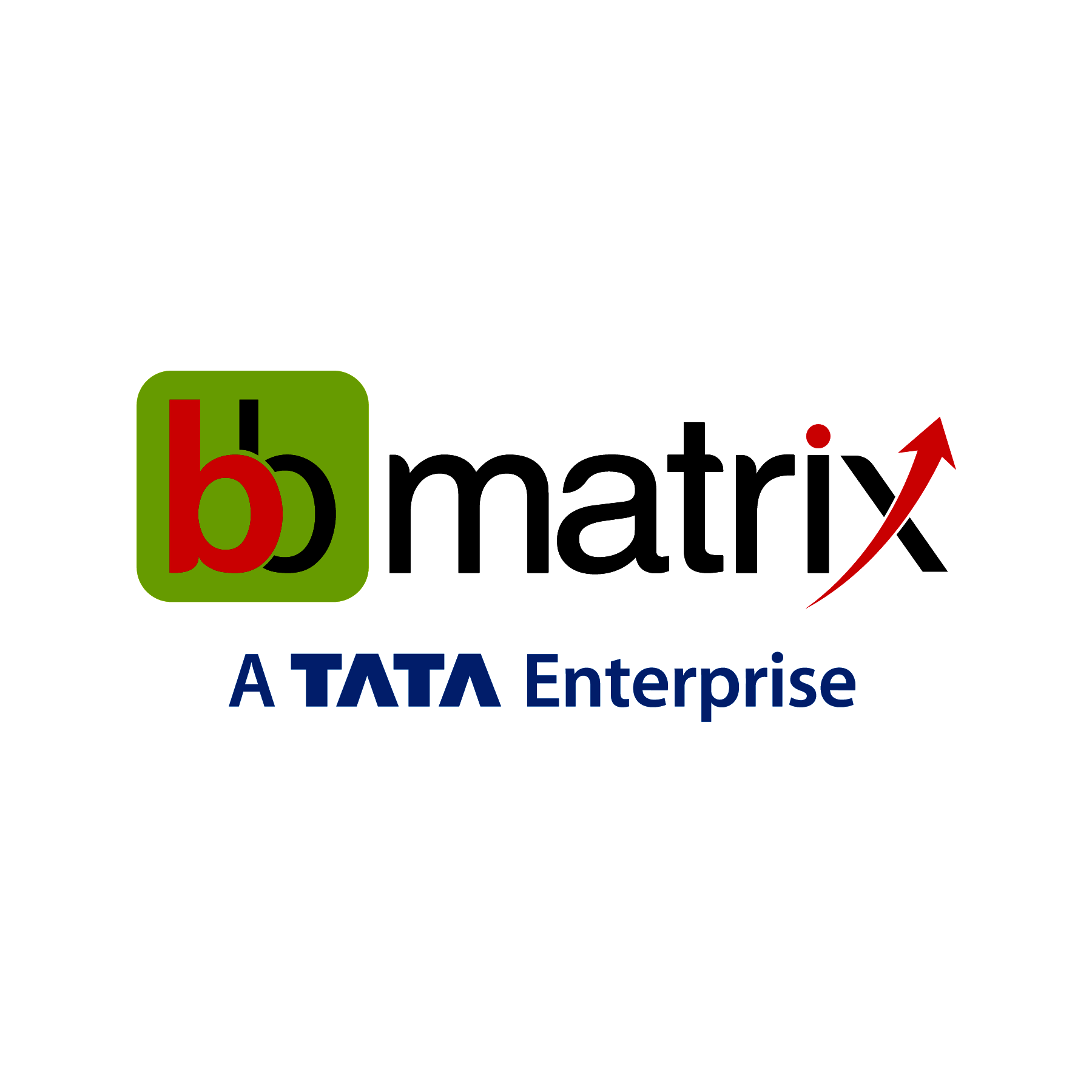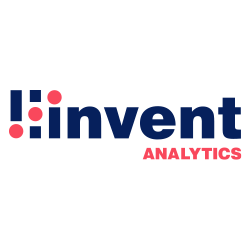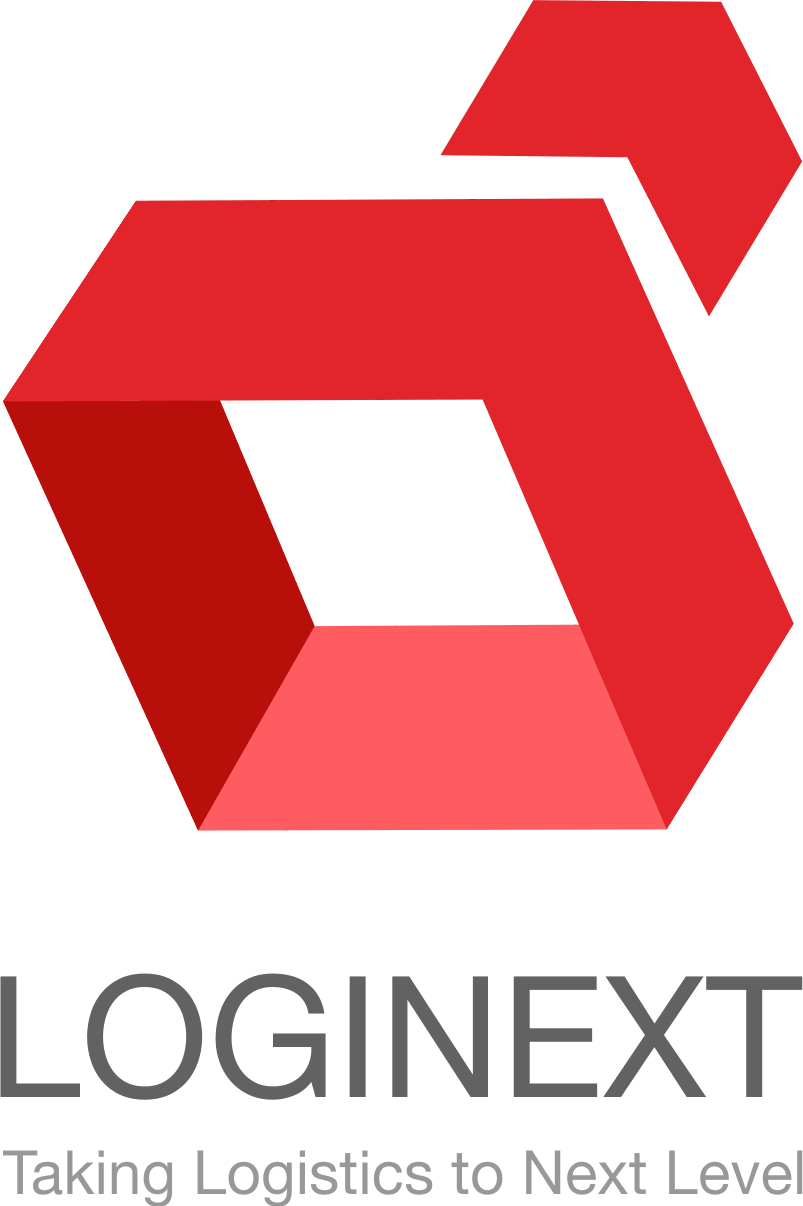Yes, most supply chain management software is accessible across numerous devices and platforms. This enables smooth cooperation and real-time changes, independent of the device or operating system being utilized. Some software may have particular compatibility requirements, so consult with the provider. However, with the rise of cloud-based solutions, supply chain management software now includes cross-platform accessibility.
List of 20 Best Supply Chain Management Software
Supplymint is a supply chain management solution designed to streamline your business processes. Our software provides a comprehensive platform for planning, procurement, tracking, inventory management, and sales. With a cloud-based system, you can e...Read More Supplymint
E2open is the leading provider of advanced cloud-based software for supply chain management. Our powerful platform is designed to help businesses improve efficiency, communication, and overall productivity. Trusted by top global enterprises, E2opens...Read More E2open
Warm Commerce - the unbeatable B2B supplier platform known for its unmatched network effects. Our top-notch supply chain management and sourcing solutions are geared towards cultivating a robust, varied, and economical supply chain. Discover the adva...Read More Warm Commerce
TeamSeer is a workforce management software that caters to the needs of small and medium-sized businesses as well as enterprises. Designed for Windows users, it offers advanced features such as Labor Projection and Time & Attendance capabilities. Wit...Read More TeamSeer
Ramani is a software for mapping and data visualization. Unlock the potential of your data with real-time analytics, seamless integration, and intuitive interfaces. Streamline your operations and make informed decisions with Ramani, boosting your bus...Read More Ramani
Multiorders is a cloud-based tool created for small and medium-sized businesses and online retailers. Its main objective is to simplify the process of managing orders and inventory by seamlessly integrating with all sales platforms and shipping servi...Read More Multiorders
PRM360, the innovative Simplified Procure-to-Pay Suite from Acads360 India Pvt Ltd. Powered by the cloud, our robust procurement software optimizes and automates the entire procure-to-pay process, resulting in cost reductions and risk mitigation for...Read More PRM360
Discover the power of eValueMax - an integrated ERP, SCM, and CRM software that harnesses the latest in AI and cloud technology to streamline your business processes. Perfect for companies of all sizes, our comprehensive solution offers a suite of in...Read More eValueMax
Route4Me is route planning software built for both enterprises and small businesses. Utilizing global mapping data, users can effortlessly generate, share, and organize optimized vehicle routes. Featuring advanced functionality, Route4Me facilitates...Read More Route4Me
NYGGS SCM is a supply chain management software. Streamline your supply chain processes and maximize operational efficiency with our intuitive platform. From start to finish, our advanced tools and features will help unlock your businesss potential...Read More NYGGS SCM
V5 Traceability - the premier software for food safety, manufacturing, and pharmaceutical traceability. Our cutting-edge platform offers complete tracking of food products and ingredients throughout their supply chain, guaranteeing thorough traceabil...Read More V5 Traceability
Marg ERP 9+ software - a solution for small and medium enterprises in the retail, distribution, and manufacturing sectors. Boasting a robust support network of 800+ centers and a dedicated user base of 9 Lac+, Marg ERP 9+ simplifies business operatio...Read More Marg ERP 9+ Software
Organizer is a software designed to efficiently manage all your material requirements. From security measures to user-friendly input controls, this software has got you covered. With highly customizable print forms and reports, as well as the option...Read More Organizer
EMERGE App is a solution for your expanding business. Boost your efficiency with our complete set of features for seamless management of multi-channel sales, purchasing, product, inventory, and basic accounting. Whether you handle traditional offline...Read More EMERGE App
TATA BB Matrix WMS solution for real-time inventory tracking and streamlined warehouse management. From procurement to delivery, our all-in-one platform offers complete visibility and seamless operations to meet all customer demands. Improve efficien...Read More TATA BB Matrix WMS
Omnichain is a reliable platform that helps Amazon sellers enhance their online visibility through advanced Webflow development and comprehensive SEO solutions. Our conversion-driven tactics and tailored consultations will revolutionize your digital...Read More Omnichain
Paccurate is a cartonization software that revolutionizes shipping for businesses and the planet. By minimizing supply chain and logistics expenses and reducing waste, Paccurate helps companies save costs and prioritize environmental consciousness. W...Read More Paccurate
Invent Analytics Omni-Plan is a solution for retailers to streamline inventory and pricing strategies. Our advanced software leverages accurate and detailed forecasts to drive profitable inventory decisions. No more relying on intuition, embrace stra...Read More Invent Analytics
CData Arc is a integration platform built to simplify B2B EDI transactions and securely transfer files. Seamlessly connect with over 100 enterprise applications and data sources for seamless data integration. Say farewell to complicated processes and...Read More CData Arc
LogiNext On-Demand – solution to revolutionize your companys logistics and on-demand delivery services. By automating and optimizing the process, this software guarantees prompt and proficient express deliveries. Say farewell to setbacks and w...Read More LogiNext On-Demand
Learn More About Supply Chain Management Software
- What Is Supply Chain Management Software?
- What Are The Recent Trends In Supply Chain Management Software?
- Benefits Of Using Supply Chain Management Software
- Important Factors To Consider While Purchasing Supply Chain Management Software?
- What Are The Key Features To Look For In Supply Chain Management Software?
- Why Do Businesses Need Supply Chain Management Software?
- How Much Time Is Required To Implement Supply Chain Management Software?
- What Is The Level Of Customization Available In Supply Chain Management Software?
- Which Industries Can Benefit The Most From Supply Chain Management Software?
- Conclusion
What Is Supply Chain Management Software?
Supply Chain Management Software is an innovative and comprehensive business solution that streamlines and optimizes supply chain operations for businesses in a variety of industries. It is an effective tool for organizations to manage and coordinate all areas of the supply chain, from raw material sourcing to final product delivery to clients.
This software provides firms with comprehensive insight and control over their supply chain, allowing them to make data-driven decisions while improving overall efficiency and performance. It provides a variety of services, including inventory management, demand planning, procurement, logistics, warehouse management, and more, all on a one platform.
One of the primary advantages of Supply Chain Management Software is its capacity to automate and simplify complex procedures, thereby saving time and lowering the risk of errors. It also enables organizations to interact with suppliers and partners, resulting in improved communication and stronger partnerships. This program allows businesses to optimize inventory levels, monitor supplier performance, track shipments, and analyze data to identify areas for improvement. The software's real-time analytics and reporting capabilities offer significant insights, allowing firms to make proactive decisions and remain competitive in a fast changing industry.
What Are The Recent Trends In Supply Chain Management Software?
Supply chain management software has evolved dramatically in recent years, owing to the ongoing growth of technology and organizations' increasing expectations for more efficient and effective supply chain operations. To make informed purchasing decisions, buyers must keep up with the newest innovations in supply chain management software.
Here are some of the latest trends in the supply chain management software market:
1. Cloud-Based Solutions: One of the most significant trends in supply chain management software is the transition to cloud-based solutions. Cloud-based software allows for real-time data access, which improves collaboration and visibility throughout the supply chain. It also provides more cost-effective solutions, allowing organizations to pay for only the functionality and storage they require.
2. Artificial Intelligence And Machine Learning: Supply chain management software is increasingly incorporating artificial intelligence (AI) and machine learning (ML). AI and machine learning algorithms can evaluate massive amounts of data, discover trends, and generate accurate forecasts, improving supply chain planning efficiency and accuracy. This trend is projected to continue as more organizations understand the benefits of cost reduction and operational optimization.
3. Internet Of Things (IoT) Integration: IoT devices are rapidly being utilized in supply chain management to track shipments, check inventory, and gather real-time data. Integrating IoT devices with supply chain management software allows firms to gain real-time access into their operations while also streamlining processes and workflows.
4. Blockchain Technology: Blockchain technology is gaining popularity in supply chain management because it provides a safe and transparent method for tracking and tracing products along the supply chain. It enables firms to verify the validity and origin of items, which is particularly important in areas like food and medicines.
5. Omnichannel Capabilities: With the rise of e-commerce, supply chain management software has grown to include omnichannel functionality. This means that businesses may manage and deliver orders from several channels, such as online marketplaces, brick-and-mortar stores, and third-party merchants, using a single system.
These trends are altering the supply chain management software market, providing organizations with more complex and comprehensive options for managing their supply chain operations. As a buyer, staying current on these trends can help you select the correct software to meet your specific business goals and generate development and success.
Benefits Of Using Supply Chain Management Software
Supply Chain Management Software (SCM) is a strong tool that helps firms optimize their supply chain procedures and increase overall efficiency. This software helps manage all areas of the supply chain, from procurement to delivery, and has numerous advantages for businesses of all sizes.
Here are some of the main advantages of adopting Supply Chain Management Software:
1. Improved Visibility And Control: One of the primary advantages of SCM software is its ability to provide real-time visibility and control across the whole supply chain. This program enables firms to check inventory levels, evaluate supplier performance, and anticipate possible bottlenecks or issues before they occur. This enables better decision-making and the capacity to handle any supply chain difficulties ahead of time.
2. Improved Communication: SCM software facilitates communication among various departments, suppliers, and customers, resulting in a more integrated and streamlined supply chain. This leads to better communication, faster decision-making, and more production. When all stakeholders are on the same page, it is easier to manage complicated supply chain operations and assure timely delivery.
3. Increased Efficiency And Cost Savings: By automating numerous processes and delivering real-time data, SCM software can significantly enhance efficiency and save expenses. This is accomplished by removing manual errors, shortening lead times, and optimizing inventories. Better inventory management allows organizations to minimize stockouts and overstocking, resulting in significant cost savings.
4. Better Demand Planning: SCM software enables organizations to precisely estimate demand and schedule production appropriately. This not only helps to satisfy consumer demand, but also optimizes inventory levels and reduces excess stock. Businesses that understand customer demand can reduce stockouts, improve delivery times, and ultimately increase customer happiness.
5. Streamlined Compliance And Risk Management: SCM software assists firms in complying with rules and mitigating risks by including capabilities like supplier performance tracking, traceability, and quality control. This guarantees that products meet regulatory requirements while reducing the risk of supply chain disruptions.
6. Scalability And Flexibility: As firms grow, their supply chain requirements change. SCM software is scalable and flexible, allowing firms to adjust as their requirements evolve. This means that organizations may easily add new suppliers, grow into new markets, and implement new processes without disrupting the supply chain or incurring additional expenditures.
Important Factors To Consider While Purchasing Supply Chain Management Software?
When it comes to choosing supply chain management software, there are numerous key elements to consider in order to make the best option for your company. Supply chain management entails coordinating and optimizing all operations involved in the manufacture and distribution of a product or service, and using the correct software can significantly enhance efficiency and profitability.
Here are some crucial considerations to consider during the purchasing process:
1. Scalability: One of the initial considerations is the software's scalability. Can it expand and adapt alongside your company as it evolves? Look for a solution that can handle expanding data quantities, users, and complexity as your company grows.
2. Integration Capabilities: Supply chain management software should be compatible with your current systems, such as Enterprise Resource Planning (ERP) and Customer Relationship Management (CRM) software. This ensures a seamless data flow and prevents duplication of effort.
3. Cloud-Based vs. On-Premise: Determine whether you prefer a cloud-based or on-premise solution. Cloud-based software provides flexibility and accessibility, whilst on-premise software offers for greater control and customization. Consider the benefits and drawbacks to determine which choice is best for your company.
4. Ease Of Use: The software should be simple to use and navigate, with an intuitive interface. This is especially critical if your team plans to use the program on a daily basis. A complex system can slow down processes, causing dissatisfaction and errors.
5. Features And Functionality: Make a list of the major features and functionality you need from supply chain management software. Inventory management, order monitoring, vendor management, and other functions may fall under this category. Examine various software options to guarantee they match your specific requirements.
6. Customer Support: Look for a software company that provides dependable customer service and assistance. You want to be able to rely on their experience and assistance if any problems emerge, as well as having access to training and resources to properly exploit the software's features.
7. Security: Since supply chain management contains sensitive data, security should be a primary priority. Look for software that includes robust security measures, such as data encryption and regular backups, to ensure the safety and confidentiality of your data.
8. Cost: Finally, think about the cost of the software. While it may be tempting to choose the least priced solution, consider the long-term benefits and ROI that more sophisticated and feature-rich software may provide. Before making a decision, consider your budget as well as the value the program will add to your firm.
What Are The Key Features To Look For In Supply Chain Management Software?
Supply chain management software is an essential resource for businesses of all sizes and sectors. It enables businesses to successfully manage and streamline their supply chain activities, including procurement, production, distribution, and fulfillment. As a buyer, it is critical to grasp the major features that distinguish supply chain management software in the market.
Here are the most important aspects to consider when making your purchasing decision:
1. End-To-End Visibility: A reliable supply chain management software should provide complete visibility into all supply chain operations and activities. This includes real-time inventory, order, and shipment tracking, as well as manufacturing status updates. With total insight, businesses can make data-driven decisions and discover bottlenecks in their supply chain.
2. Demand Planning And Forecasting: The software should be capable of analyzing historical data and market trends in order to accurately predict future demand. This enables businesses to optimize their inventory levels and minimize stockouts or overstocking.
3. Supplier Management: Supplier management is an important component of supply chain management, and the software should include capabilities that allow for efficient collaboration and communication with suppliers. This involves automating purchase orders, tracking vendor performance, and receiving real-time supplier updates.
4. Inventory Management: Efficient inventory management enables organizations to meet customer demand while lowering expenses and waste. To assist firms in maintaining ideal inventory levels, the software should have capabilities such as inventory optimization, automated replenishment, and multi-location tracking.
5. Traceability And Compliance: In today's global market, supply chain traceability is critical to ensuring product quality and safety. To ensure compliance with industry requirements, the software should have traceability features such as lot tracking, expiration date tracking, and serial number tracking.
6. Integration Capabilities: Good supply chain management software should work easily with other business systems including accounting, e-commerce, and warehouse management. Integration reduces data silos, increasing overall efficiency and accuracy.
7. Analytics And Reporting: The software should include comprehensive analytics and reporting capabilities to help businesses gain useful insights and make data-driven decisions. These characteristics enable businesses to find opportunities for improvement and assess the efficacy of their supply chain procedures.
Why Do Businesses Need Supply Chain Management Software?
Introduction: Supply chain management software (SCM) is a technology-driven solution that assists businesses in streamlining and optimizing their supply chain operations. It is an essential tool for businesses of all sizes and industries since it streamlines the movement of goods and services from suppliers to customers. With the growing complexity and competitiveness of the global marketplace, supply chain management software has become an essential component of any business's success.
Let's explore, we'll look at why businesses need supply chain management software and how it can help your organization.
1. Improved Planning And Forecasting: One of the key motivations for firms to use supply chain management software is to improve their planning and forecasting abilities. This program uses complex algorithms and data analytics to help businesses properly forecast demand and plan for future supply chain requirements. Businesses that have a comprehensive awareness of consumer wants and supply chain performance can make better decisions and avoid overstocking or stock shortages. This leads to improved inventory management and lower expenses.
2. Improved Visibility And Control: Supply chain management software gives firms real-time visibility and control over their entire supply chain. It simplifies processes and consolidates all supply chain activities into a single consolidated platform, allowing businesses to monitor and manage their operations more efficiently. This greater visibility enables businesses to quickly identify and address possible supply chain interruptions, reducing the impact on their operations and consumers.
3. Improved Inventory Management: Supply chain management software enables organizations to optimize their inventory management, ensuring that the appropriate products are available at the right time and in the right quantities. It tracks inventory levels in real time and sends out automatic alerts when stock levels fall below a certain threshold, assisting businesses in avoiding stockouts and missed revenues. This software also helps businesses discover slow-moving or obsolete inventory, allowing them to make data-driven decisions about liquidating or restocking stock, lowering inventory expenses.
4. Efficient Supplier Relationship Management: Supply chain management software enables firms to manage their supplier relationships more efficiently. The program includes tools and functions for managing supplier contracts, monitoring performance, and tracking critical metrics including delivery time and quality. This ensures that organizations work with dependable and efficient suppliers, resulting in higher product quality and faster delivery times.
5. Cost Savings And Increased Efficiency: One of the most major advantages of supply chain management software is the ability to save money and increase efficiency for firms. Companies can cut costs and increase efficiency by reducing procedures, optimizing inventory, and enhancing planning. This leads to long-term cost reductions for firms, allowing them to remain competitive in their marketplaces.
How Much Time Is Required To Implement Supply Chain Management Software?
The implementation time for supply chain management software varies according to your company's individual demands and requirements. However, it can take anywhere from six months to a year from the original planning phase to the final implementation. This timeline includes tasks like data integration, testing, training, and post-implementation support.
The implementation process is divided into several stages, beginning with identifying your business needs and picking the appropriate software solution. This is followed by data mapping and integration, which involves moving existing data into the new system. The program is then modified and configured to fit your specific business procedures. This is an important step to confirm that the program meets your specific supply chain requirements.
Once the system is fully configured, it is thoroughly tested to ensure that all features and functions work properly. Following successful testing, your team will receive training on how to utilize the software effectively and make the most of its features. This is required for a smooth transition to the new system and to fully realize its benefits. Post-implementation support is also critical to the success of supply chain management software. This includes continuous support from the software supplier for any issues or questions that may arise, as well as regular software updates to keep the system up to date and efficient.
What Is The Level Of Customization Available In Supply Chain Management Software?
The level of customization offered by supply chain management software varies substantially depending on the software and vendor. However, most software solutions provide a variety of customization choices to fit the specific demands of individual firms. First and foremost, supply chain management software enables customers to tailor their workflows and procedures to their individual supply chain requirements.
This means that organizations can customize the software to their specific supply chain structure, removing the need for manual workarounds or revisions. Furthermore, many supply chain management software packages provide a variety of features and modules that may be added or removed according to a company's needs. This modular approach enables firms to pay for exactly the capabilities they use while eliminating extraneous features that can clutter the system.
In addition, customization possibilities may include the ability to link with other software systems, such as enterprise resource planning (ERP) or accounting software. This enables seamless data and information sharing across several applications, increasing overall supply chain visibility and efficiency. Some supply chain management software suppliers also give bespoke development services to businesses with highly specific or unique requirements.
This enables the implementation of custom capabilities or connectors that are not included in the standard software package. Businesses must thoroughly examine and communicate their modification requirements with potential software suppliers in order to ensure that the software can be adjusted to their specific needs. This can help optimize the software's functionality and performance, resulting in improved supply chain procedures and productivity.
Which Industries Can Benefit The Most From Supply Chain Management Software?
Supply chain management software is an essential tool for organizations of all sizes and industries in today's fast-paced, worldwide economy. It enables firms to streamline procedures, cut costs, and boost efficiency throughout their supply chain. Certain industries, however, stand to benefit more than others from the use of supply chain management software.
Let's explore, we'll look at which sectors can benefit the most from employing supply chain management software.
1. Retail And E-commerce: The retail and e-commerce industries have complex and competitive supply chains. The development of internet shopping has raised customer expectations for fast and reliable delivery. Supply chain management software can assist these firms in streamlining inventory management, reducing stockouts, improving order fulfillment, and improving the customer experience.
2. Manufacturing: Supply chain management software is a game changer in the manufacturing sector. It allows firms to have greater control and insight over their manufacturing processes, supply chain, and inventories. The program can also optimize production schedules, shorten lead times, and lower costs, leading in increased profitability.
3. Food And Beverage: The food and beverage business faces unique supply chain issues, including perishable products, stringent regulations, and complex distribution networks. Supply chain management software can assist these organizations in managing production schedules, reducing food waste, complying with regulations, and improving traceability.
4. Pharmaceutical And Healthcare: The pharmaceutical and healthcare industries have intricate supply chains with various partners, stringent regulations, and time-sensitive products. Supply chain management software can help these organizations maintain product integrity, ensure compliance, and increase supply chain efficiency.
5. Logistics And Transportation: The delivery of goods and services to consumers is strongly reliant on successful supply chain management. Supply chain management software can assist these firms in optimizing routes, tracking shipments, streamlining processes, and providing better customer service.
6. Building: The building business entails managing complicated supply chains, from raw materials to finished goods. Supply chain management software can assist these firms in monitoring inventory levels, tracking project timelines, and enhancing coordination with suppliers and contractors.
Conclusion
To summarize, selecting the correct supply chain management software for your business is critical for optimizing operations and enhancing efficiency. It is critical to first assess your organization's specific goals and objectives, and then compare the features and capabilities of several software alternatives to choose the best fit. When making a decision, consider variables such as system integration, usability, scalability, and customer support.
Furthermore, thoroughly analyzing the software provider's reputation and track record can help assure a stable and effective cooperation. Remember that investing in dependable and effective supply chain management software can benefit your firm in the long run, resulting in increased profitability and competitive advantage. We hope this buyer's guide has provided you with valuable insights and thoughts to help you make an informed selection.
Supply Chain Management Software FAQ's
Can Supply Chain Management Software Be Accessed Across Multiple Devices And Platforms?
Is Supply Chain Management Software Future-Proof And Adaptable To Emerging Technologies Like AI, Blockchain Or IoT?
Yes, Supply Chain Management software is intended to be future-proof and adaptable to new technologies such as AI, blockchain, and IoT. These technologies are constantly changing, and SCM software is intended to integrate and use the most recent innovations to improve supply chain operations.
SCM software, which includes skills like as demand prediction, process automation, and inventory management optimization, assists firms in staying ahead of the fast-paced business landscape and remaining competitive in the long run.
Is There A Free Trial Offered To Assess Supply Chain Management Software Before Committing?
Yes, many supply chain management software suppliers provide free trials to prospective clients. This enables organizations to evaluate the software's functionality, usability, and compatibility with their operations before making a purchase.
During the trial time, users can test the software's capabilities to see if it satisfies their unique requirements. In most situations, the free trial period lasts 14 to 30 days, allowing businesses enough time to make an informed decision about investing in the program.
Does Supply Chain Management Software Offer Data Security Features And Meet Regulatory Compliance Standards?
Yes, most Supply Chain Management (SCM) software has advanced data security capabilities to protect and maintain the confidentiality of important corporate information. These features include data encryption, multi-level user access controls, safe data storage, and automated data backups.
Furthermore, SCM software is designed to fulfill legal requirements such as GDPR, HIPAA, and ISO 27001, giving organizations peace of mind that their data is secure and in compliance with industry regulations.
Can Supply Chain Management Software Integrate Seamlessly With Existing Tools And Platforms?
Yes, most supply chain management software is designed to work easily with other tools and platforms. Businesses can continue to use their favorite software while still reaping the benefits of a comprehensive supply chain management solution. APIs are commonly used for integration, as are specific integrations with major platforms such as ERP and CRM systems. This guarantees that data flows smoothly and efficiently throughout the supply chain, hence boosting total visibility and control.


